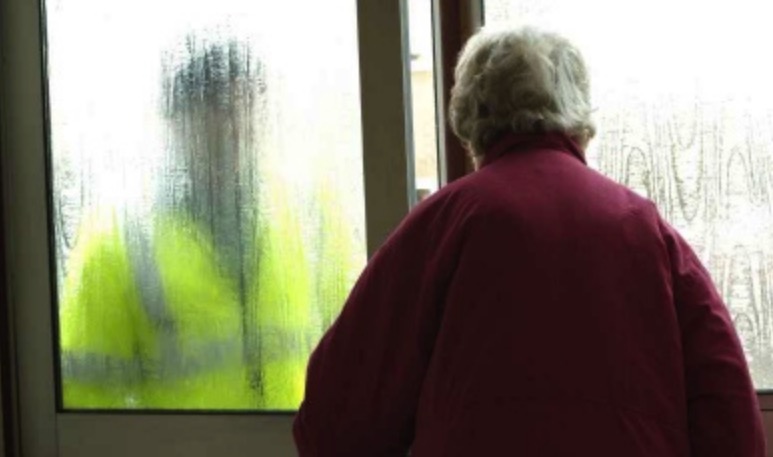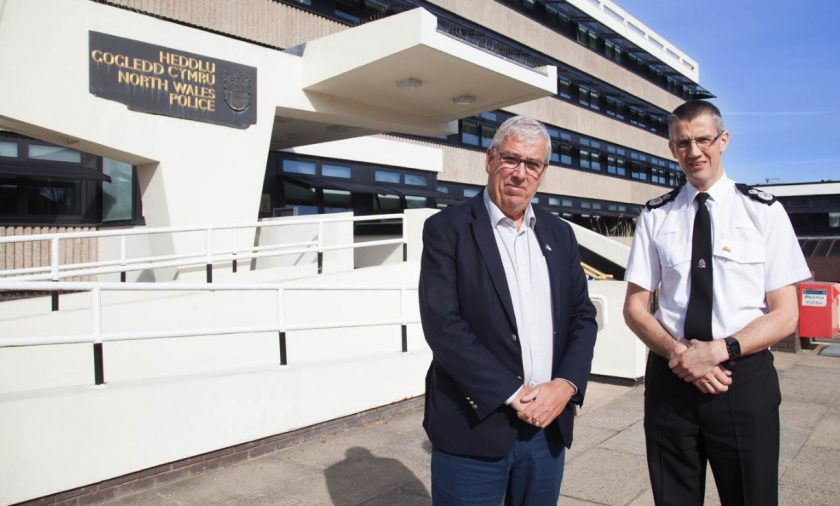Crime against older people isn’t well understood but watchdog praises North Wales Police for leading the way

Older people who have been the victims of crime are often let down by the police and wider criminal justice system according to a new report by Her Majesty’s Inspectors of Constabulary and Fire & Rescue Services.
The report by the inspectorate found that the police have only a “superficial understanding” of the nature and extent of crimes against older people, which often results in a poorer service to older victims.
Older people account for 18 percent of the population, but over eight out of ten victims of doorstop scams are elderly, and they also comprise a quarter of domestic homicide victims.
North Wales Police was however praised by the watchdog for the pioneering way it is dealing with crimes against the elderly.
Inspectors were ‘impressed’ by the new system introduced by the force.
They urged other constabularies in England and Wales to copy the methods used in North Wales to ensure investigators had the right skills and training to suit the particular circumstances of each case.
North Wales Police was one of six forces put under the microscope by the inspectors.
The findings were welcomed by the region’s Police and Crime Commissioner, Arfon Jones, who said the ground-breaking approach chimed with the priorities of his Police and Crime Plan.

[North Wales Police and Crime Commissioner Arfon Jones with Chief Constable Carl Foulkes]
North Wales Police Chief Constable Carl Foulkes welcomed the report which recognises that the police have adopted new and innovative practice.
The success of the system in North Wales was down to the way the force chose the right people to investigate crimes against the elderly.
What the report said:
In most of the forces we visited, the crime allocation policies weren’t sophisticated enough to always produce the right decisions for the particular circumstances of the case.
Victims suffered poor outcomes after their case was allocated to officers who may not have the skills and training, or time, to investigate effectively.
In one force, North Wales Police, we were impressed with a more detailed and well-researched crime allocation process that was likely to provide more consistent and well-evidenced decisions.
North Wales Police has introduced a crime allocation triage process based on a simple-to-use scoring matrix.
The system gives scores for various aspects of the investigative process, and considers risk, severity and complexity.
Importantly, the development of the process was based on an analysis of which police role made the best decisions about crime allocation. This showed that detective sergeants were best placed to make these decisions based on their investigative skills and experience.
The resulting process considers important questions such as whether a safeguarding meeting may be required, and what the needs of the victim may be – for example, a video-recorded interview or special measures.
The process provides an indicative score that enables good decisions to be made about which officers are best placed to investigate the crimes.
This system, while still relatively new, has the potential to improve crime investigation.
This is because it can more consistently recognise that not all crimes and victims are the same, and each has different needs that may require different skills and training.”
HM Inspector of Constabulary, Wendy Williams, said:
“As people are living increasingly longer, it is imperative that the needs of older people are properly understood by those charged with protecting them.
While the care and concern of police officers for all victims of crime cannot be doubted, older victims often present unique challenges which need to be considered.
Unfortunately, our inspection found that older people are often not treated according to their needs by the criminal justice system. A good start would be to make sure assessments are consistently made of victims’ needs.
We want to see a sharper focus on older people, and the problems they face. For example, we believe that the police and the CPS can work together better to understand the problem and develop strategies for how to respond.
We are also concerned about the lack of consistent adult safeguarding arrangements. We want this inspection to kickstart the change and we hope that our recommendations will make all vulnerable people safer.”
Spotted something? Got a story? Send a Facebook Message | A direct message on Twitter | Email: [email protected]
Latest News









